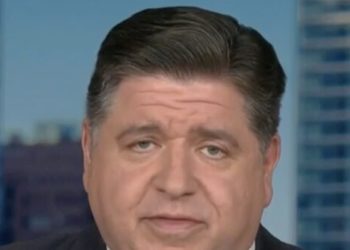Liberal party won Canada’s federal election, according to Tuesday projections by Canadian broadcasters CTV and CBC News.
It was not yet clear if the Liberal party would secure the 172 out of 343 electoral seats needed for a majority, reported CBC. The Liberals were leading in 161 districts with the Conservatives leading in 150.
CTV news predicted Carney would not get the majority he wanted to better negotiate trade deals with Trump.
This marks a comeback for the Liberals, whose popularity had suffered before in January this year.
Why did Carney call a snap election?
Carney was elected by the Liberals to replace Trudeau, but called for an election just nine days after taking office to seek a “strong, positive mandate” amid the general unpopularity of his party.
He was facing off against Conservative Pierre Poilievre who had been high in the polls before Trudeau stepped down. However, a series of factors, perhaps most significantly antagonism from Canada’s powerful neighbor, gave Carney a historic boost of popularity.
Around 29 million Canadians voted . The first polling stations to open in the massive G7 country that spans six time zones were in the Atlantic province of Newfoundland and Labrador.
A record 7.3 million votes were cast before election day.
The country has been facing a cost-of-living crisis, and look likely to hit the country’s economy even further.
With 75% of Canada’s exports going to the US, both candidates said they would accelerate efforts to strike a free trade deal between the country and its southern neighbor.
Trump statements take center stage
The statements by US President Donald Trump about Canada becoming the US’ 51st state have played a role during the campaign. Trump also repeated the call on election day.
“Look how beautiful this land mass would be. Free access with NO BORDER,” Trump posted on his Truth Social account.
Canadian Prime Minister Carney has repeatedly rejected the idea.
“This is — and we decide what happens here,” Carney posted on his X account.
Carney’s challenger Poilievre, too, struck similar tones and called the US president to “stay out” of Canada’s election.
“Canada will always be proud, sovereign and independent,” the Conservative leader posted on his X account, concluding that the country will “NEVER be the 51st state.”
The ‘Trump factor’ hurts Conservatives
Many Canadians responded to Trump’s approach towards the country by refusing to buy US goods and cancel vacations in their southern neighbor.
Carney’s Liberals, which once looked on their way to defeat ahead of Trump’s threats against Canada’s sovereignty and economy, entered election day with them leading in the latest opinion polls, with Conservative Poilievre’s populist campaign and its similarities to the US President potentially costing him the election.
Carney’s success at the polls will also come as a blow to Trump who had consistently railed against the Liberals, especially under Trudeau.
“It was the ‘anybody-but-Conservative’ factor, it was the Trump tariff factor, and then it was the Trudeau departure… which enabled a lot of left-of-center voters and traditional Liberal voters to come back to the party,” Shachi Kurl, president of the Angus Reid Institute polling firm told Reuters news agency.
Edited by: Richard Connor, Saim Dušan Inayatullah and Alex Berry
The post Canada’s PM Carney on course to win election appeared first on Deutsche Welle.




